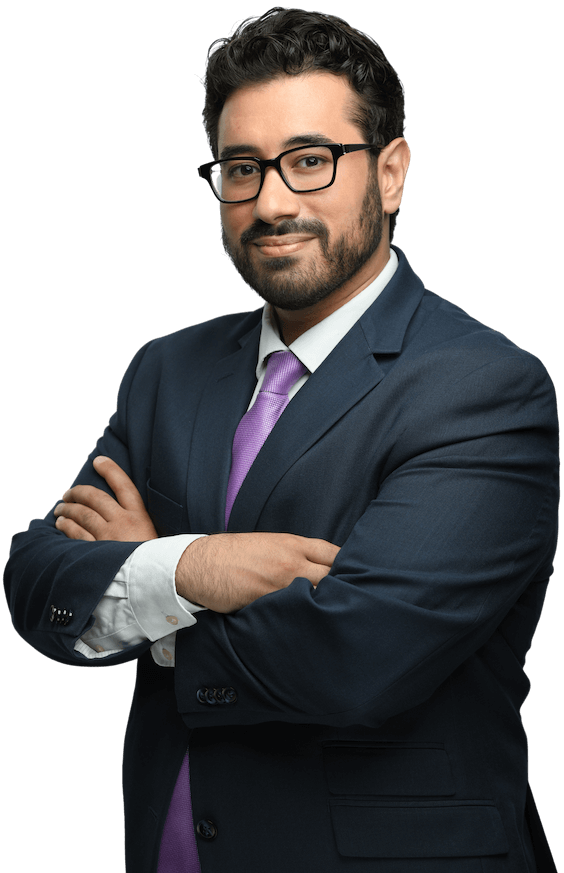Attorney Mehdi Essmidi was a life saver. I was in a very horrible situation, where I reached out to Mehdi on a Sunday, and was able to speak with him regarding my issues. Rather than wait until the following Monday, we set a time to meet & speak so take action in regards to my issues. Fast forward, my case was later dismissed - and my I was able to resume my daily life. Cheers to Mehdi.

How a Supreme Court Decision Is Transforming Sentencing Laws in New York
Call us now or schedule a free consultation, and Attorney Mehdi Essmidi will contact you personally to discuss your case.

In June 2024, the U.S. Supreme Court handed down a significant decision in Erlinger v. United States. This ruling has already begun to transform how sentencing laws are applied nationwide.
This landmark case has implications for how judges and juries determine facts that can lead to harsher penalties, particularly in New York, where sentencing procedures for repeat offenders are under scrutiny.
The Supreme Court decision reinforces the principle that serious consequences—such as longer prison sentences—must be based on facts decided by a jury, not a single judge. This ensures greater fairness and transparency in the justice system, safeguarding the rights of all individuals, regardless of their past.
As a former New York City Prosecutor, Attorney Mehdi Essmidi understands the nuances of sentencing laws and how this new ruling could impact your case. If you’re facing repeat criminal charges or believe this decision may affect your sentence, contact us for a free consultation.
The Core Issue in the Erlinger Ruling
The case focused on a critical question: Can a judge decide, without a jury, whether certain facts justify a harsher sentence under federal law?
Specifically, the case involved the Armed Career Criminal Act (ACCA), which mandates longer sentences for individuals with three or more violent felonies or serious drug offenses, provided those crimes occurred on separate occasions.
In Erlinger’s case, the judge determined that his prior offenses qualified under ACCA using a “preponderance of the evidence” standard, meaning it was more likely than not that the crimes occurred on separate occasions.
The Supreme Court ruled this approach unconstitutional, holding that any conclusion that increases a defendant’s sentence must be decided by a jury using the beyond reasonable doubt standard, as guaranteed by the Fifth and Sixth Amendments.
Old Rules
Under the previous system in New York:
- Judges had broad discretion in sentencing, often considering factors not presented to or decided by a jury.
- Sentencing enhancements could be applied based on judicial fact-finding alone.
- Defendants could receive longer sentences based on conduct they were acquitted of or never charged with.
- The practice of “real offense” sentencing allowed judges to consider the totality of a defendant’s conduct, even beyond the specific charges.
Post-Erlinger Reality
Following the Erlinger decision, New York’s sentencing structure is changing:
- Any fact that increases a defendant’s sentence over the statutory maximum must be submitted to a jury and proven beyond a reasonable doubt.
- Judges can no longer enhance sentences based on uncharged or acquitted conduct.
- The jury’s role in the sentencing process has expanded, aligning more closely with Sixth Amendment protections.
- Sentencing hearings may become more complex, involving jury determinations on sentencing factors.
What This Means for New York
New York’s sentencing system relies on judicial findings for enhanced penalties, especially for individuals labeled as persistent or second felony offenders. For example, under current law, a judge can determine whether prior convictions fall within specific timeframes or meet certain criteria to trigger longer sentences.
The Erlinger decision changes this legal structure by requiring a jury to make these assessments. However, New York law does not currently allow juries to decide these sentencing factors. This gap creates significant challenges for courts, as they are now constitutionally barred from imposing enhanced sentences based on judicial fact-finding alone.
Key Cases Highlighting the Impact
Two recent cases illustrate how Erlinger is reshaping sentencing in New York:
- People v. Lopez: The court ruled that sentencing enhancements requiring factual determinations—such as whether prior offenses fall within a specific timeframe—must now be proven to a jury. In Lopez’s case, this meant the judge could not sentence him as a repeat offender, resulting in a significantly reduced sentence.
- People v. Banks: Similarly, the court found it unconstitutional for a judge to determine whether prior incarceration extended the timeline for sentencing enhancements. Without a mechanism to involve a jury, the defendant was sentenced as a first-time offender.
The Urgent Need for Legal Action
The Erlinger decision highlights a critical gap in New York’s legal system. While the ruling reinforces defendants’ constitutional rights, it also creates uncertainty. Judges cannot independently make the factual findings necessary for enhanced sentences, yet there is no existing process for jury involvement. This issue requires immediate attention from New York’s judiciary to establish new procedures that align with constitutional requirements.
What You Can Do If You Have Prior Offenses
The Supreme Court’s ruling in Erlinger v. United States marks a pivotal moment in criminal justice, ensuring that enhanced sentences are based on fair procedures.
As the state grapples with these changes, the focus must remain on upholding constitutional protections while creating a clear and effective path for sentencing in repeat offender cases.
Understand Your Rights
Any fact that increases your sentence beyond the statutory maximum must now be proven beyond a reasonable doubt to a jury.
Consult an Experienced Attorney
The legal system is constantly changing. It’s crucial to work with an attorney who understands these changes. A skilled New York criminal lawyer can help you evaluate and leverage the new rules to your advantage.
Contact Us for a Free Consultation
Understanding the complexities of criminal law, especially in light of the recent Erlinger decision, requires experience and knowledge. At The Law Offices of Mehdi Essmidi, we’re here to help so you don’t have to face these challenges alone.
As a former New York City Prosecutor, attorney Mehdi Essmidi brings a unique perspective to your defense. We understand how prosecutors think and how to leverage that to your advantage.
We’re committed to protecting your rights in light of this significant legal shift. Whether you’re facing new charges, concerned about potential sentencing enhancements, or believe your current sentence may be affected by the Erlinger decision, we’re here to help. Contact us for a free consultation.
Schedule a Free Consultation

Experienced Criminal Defense Attorney
As a former New York City Prosecutor, Attorney Mehdi Essmidi knows the playbook that the prosecution will use against you. He uses his experience and knowledge to aggressively fight your charges and get you the best possible outcome. If you're looking for an aggressive defense lawyer who won't back down from a challenge, then Attorney Essmidi is the right choice for you.